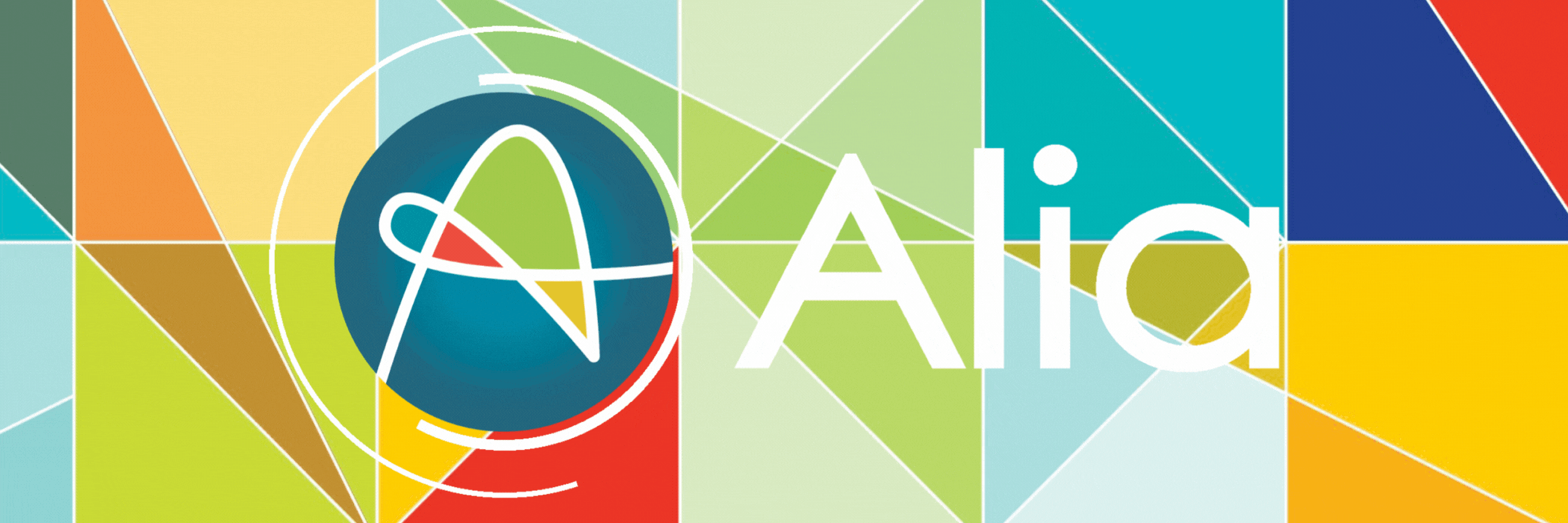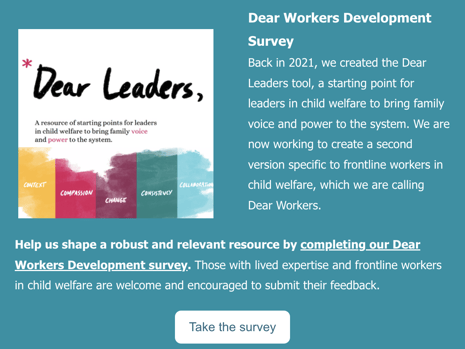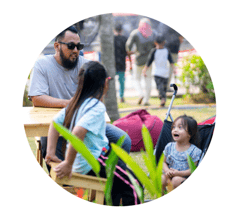
Am I an abolitionist?
This is a question that I get asked now and then. I can’t say that I have an answer that would be the same answer for each member of Team Alia, but personally, I’ve decided to answer this way: “Not yet.”
What I mean is that I can envision a future where we obsolete the need to separate children from their families, and I don’t believe we are there…yet. The public child welfare system has expanded beyond its initial scope, and is now being asked to promote family wellbeing, prevent placement, and provide supports to families. Although well-intended, the same system who has the legal authority to enter a family’s home without a warrant, leave with their children, enter the family into the penal/criminal system, and legally separate families cannot be the same system who provides early intervention and support—too much is at risk for families to place a call for help.
At Alia, we work alongside systems and impacted parents to move the power and resources of the public child welfare system into community led responses. Supports located in and delivered by local communities so parents can seek and receive the help that they need earlier, delivered by people from their community, and without risking what is most precious to them—their children.
-Feb-28-2023-09-38-21-2091-PM-1.png?width=565&height=74&name=Copy%20of%202021%20A%20Year%20in%20Review%20(1200%20x%20500%20px)-Feb-28-2023-09-38-21-2091-PM-1.png)
Read Amelia's full article on our website.
The Power of Apology
An important piece of the preparation that happens before systems are ready to engage in authentic co-design with impacted persons and communities is thinking through and acknowledging past harms done (by child welfare staff and the system as a whole), and offering an apology. Dear Leaders is one tool we use in this preparation work, and one specific focus area within the context section of this tool is beginning meetings with communities with an apology for the harm perpetuated by the system.

Laura Witham, an Associate Director of Learning at Alia, reflected on an apology offered by a County Child Welfare Director to a grandmother who previously had her grandchildren removed, and the power of that moment.
“Alia convenes organizations on a regular basis to have conversations about the child welfare system, its impact on children and families, and how we can keep kids safely with their families. More and more, in all sectors, we are trying to prioritize the voices of those with lived experience. That they be at the table alongside those in decision-making positions to disrupt the power differential. One pillar of engaging lived experts that Alia is putting into practice is to ‘See and value the lived expert in their full humanity—and let go of the rest.’ And, to ‘See the person’s inner value (first, often and actionably), rather than focusing on professionalism.’”
Read her full reflection on our website

Here are some ideas that got us thinking this month. Visit our website to read the full-length posts, and join us in the conversations online!
- Concrete supports: the tangible way to support families. Supports like cash assistance, food, housing, and healthcare strengthen families and serve as a massive protective factors to encountering the child welfare system.
-
"I know our limits, it's our own thinking." Mindset shift is deeper than learning new information, it’s changing your vantage point to allow you to see the world differently in a way that’s undoable. So what’s holding us back?


 Our Bright Spots resource library just grew! 10 new child welfare practices reviewed and recommended by parents impacted by the system have been added to the site
Our Bright Spots resource library just grew! 10 new child welfare practices reviewed and recommended by parents impacted by the system have been added to the site
Father's Feelings is an assessment and research study as well as support for dads. This project provides consultation and resources to help dads improve their skills and understanding of themselves as fathers, validating them as primary caregivers for their children.
Developed by The Institute of Family and Community Impact, an initiative of OhioGuidestone, Ohio's largest social services agency, focused on improving the lives of children, adults, and families and empowering them to build nurturing, healthy, and resilient communities.
Visit findbrightspots.org to learn more about these models and ways you can bring their vision to life in your organization!
Trauma Effective Leadership Certificate

We are excited to partner again with the Center for Practice Transformation at the University of Minnesota School of Social Work for another Trauma Effective Leadership Certificate course.
This small cohort, comprised of leaders from child welfare, human services, behavioral/mental health, law enforcement/corrections, health care, and education, will walk away with new trauma-effective leadership techniques, and increased awareness of the leader’s role in shaping culture to be safe in both conscious and unconscious practices. Space is limited! Learn more and register now through October 12!